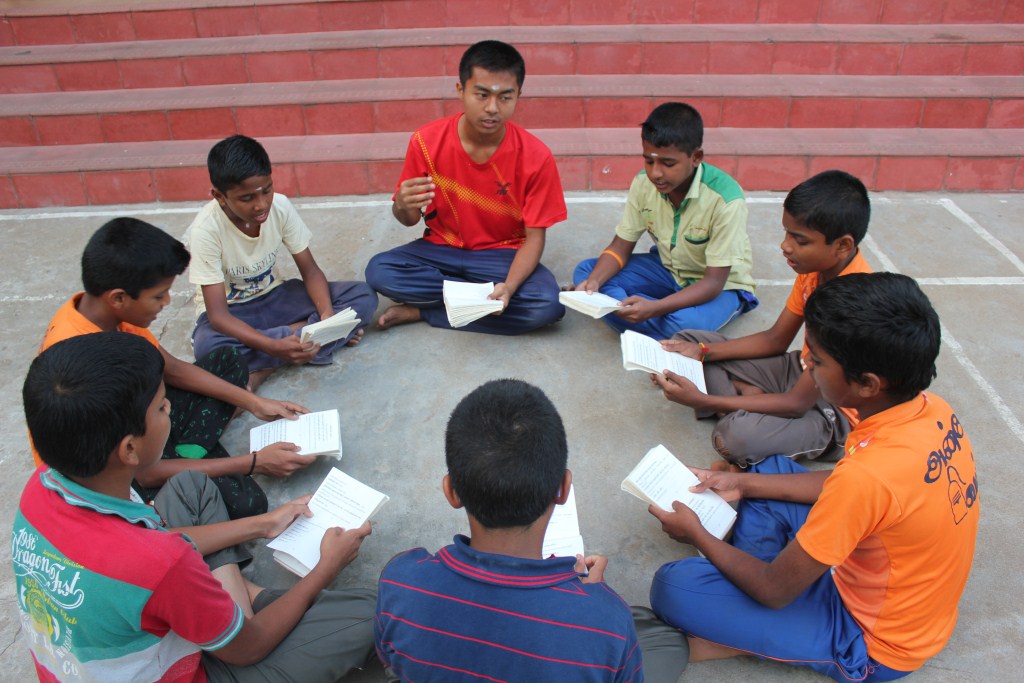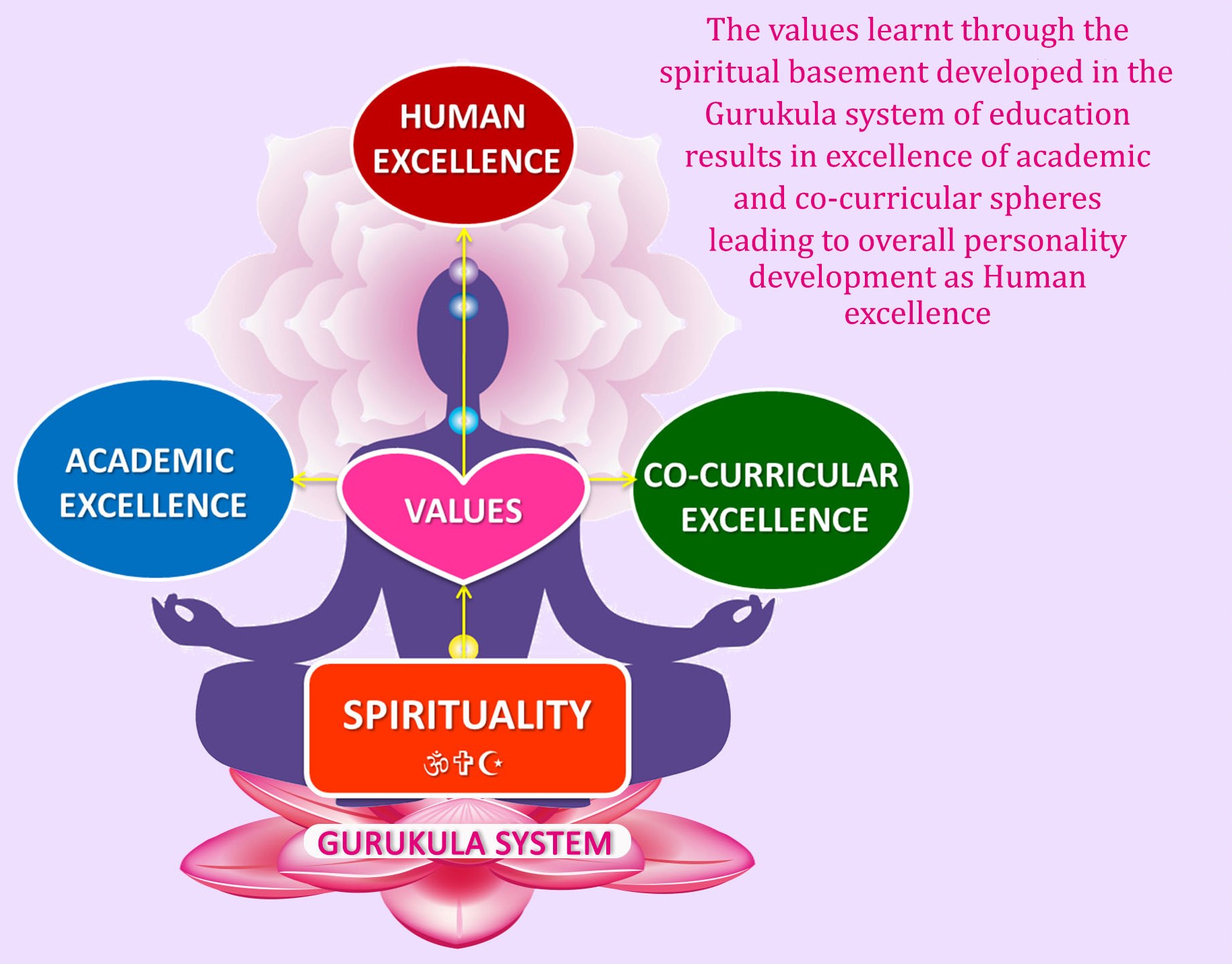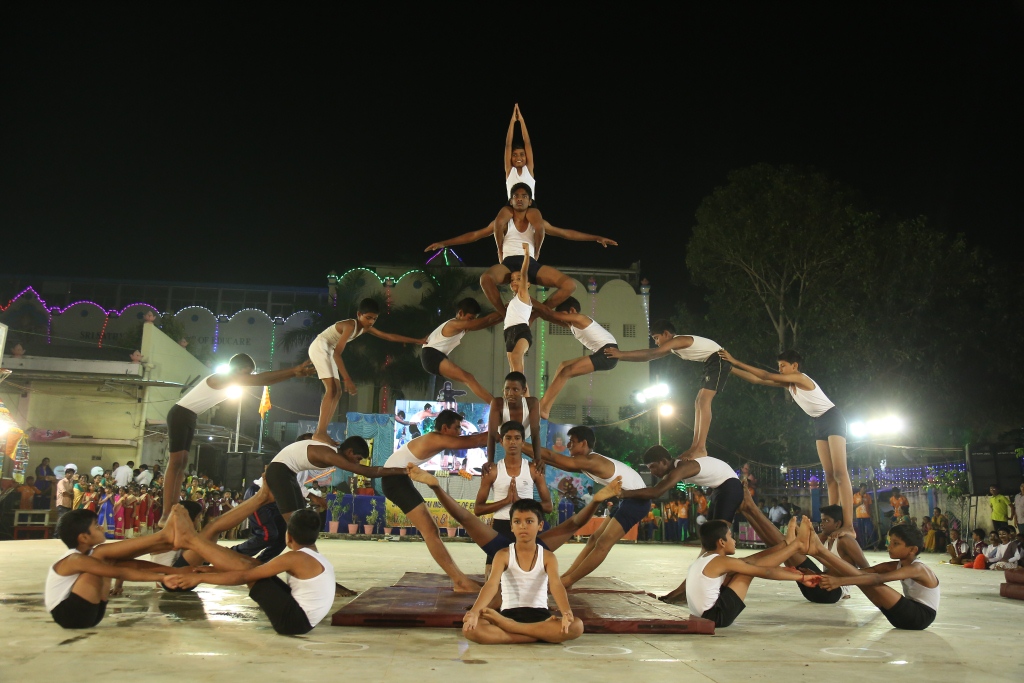SAI SYSTEM OF INTEGRAL EDUCATION

The school follows the Sai system of integral education. This system strongly believes that education is for transformation and not just information; it must construct and not just instruct. Thus the integral education aims at the development of all aspects of human personality (body, mind and spirit) in a manner that it leads to Total Human Excellence and the emergence of a complete individual.
Bhagawan Sri Sathya Sai Baba says, the word ‘Education’ is derived from the root word ‘Educare’ meaning ‘to bring out’. True education should manifest the divinity latent in man. This is the ultimate aim of the Sai system of education. This system inculcates the human values of Truth, Righteousness, Peace, Love and Non-violence in the students and reveals the true ideals of education namely, “The end of education is character” and “Education is for life and not just for living”. On the whole, it ventures to produce men and women of character who would realize the sublime purpose of this human life and work for the welfare of the society.
THREE UNIQUE FEATURES OF THE SAI SYSTEM OF INTEGRAL EDUCATION
The Sai system of integral education has the following 3 unique features:

Free Education
Education is not a commodity to be sold in the market. The society has the responsibility to make the educational opportunity available to all individuals. The teacher-student relationship should not be artificial based on commercial motives and without roots in the heart. The bond between the teacher and the taught should be of Love, Reverence and Affection. This confers the full benefits of true education.
Integral Education
Integral Education aims at the development of all aspects of human personality in a manner that it leads to total Human Excellence (development of the body, mind and the spirit). The educational programme combines professional and general education, spiritual education and integral items like personality development, meditation, universal prayer, sports and games and social work. The entire scheme aims at the blossoming of a complete individual.
Residential Education
In ancient Indian education system, the pupil stayed with the preceptor during the course of learning. The master transforms the students into a wholesome personality and divinizes each aspect of his conduct, behaviour and character. In the residential type of education, the Institution has sufficient time to mould the students and work upon each aspect of their personality, individual traits and social behaviour through various programs integrated with hostel life.
“Sai Educational Institutions shall produce a generation of youth who will live ideal lives. They shall plunge into the society with thirst for service as a spiritual duty and proclaim the real worth of their humanness. Apart from subjects, these institutions will impart instructions in ethical, moral and spiritual codes and Sadhanas. Virtues, purity of mind, adherence to truth, dedication to the Supreme, discipline, devotion to duty – these qualities will be fostered and promoted in these institutions.” – Sri Sathya Sai Baba
SSSIE INTEGRAL EDUCATION MODEL

The educational programme combines professional and general education, spiritual education and integral items like personality development, meditation, universal prayer, sports and games and social work.
Every aspect of the School’s atmosphere, teacher-student relationship, the various programmes and events are designed and organized in such a way that they play a significant role in producing a band of students physically strong, mentally balanced, morally upright, academically excellent and spiritually enlightened with multi-faceted skills.
The products of this system shall prove to be worthy of this noble heritage; practise the values of Sathya, Dharma, Shanthi, Prema and Ahimsa in thought, word and deed and dedicate their lives for social welfare.
The integral items interlinked with the School curriculum are:
1. Balvikas Training (Spiritual Education for Children)
2. Value education
3. Teaching of the Vedas, Indian Culture and Spirituality
4. Jyothi Meditation
5. Yogasanas
6. Music
7. Dance
8. Arts and Crafts
9. Service activities
10. Public Speech
11. Dramatics
12. Personality development
13. Multimedia classes
14. Computer courses
15. Mass drill
16. Sports and Games
The School also conducts several inter-School competitions and Seminars so that there is a process of mutual learning between the students of this School and other Schools and also in a way to reach out the students of the other Schools with the message of human values and Indian Culture.

Sai System of Integral Education
~~~~~
